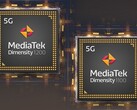Huawei has often insisted on going its own way with the in-house series of Kirin SoCs, which are produced according to original designs by the OEM's dedicated HiSilicon Technologies division. However, it was still dependent on actual foundries such as TSMC to actually make the wafers in question.
Supplies of those crucial components to Huawei became prohibited thanks to its ongoing US trade blacklisting, leaving the company to face the fact that it was not as independent in terms of chipsets as it once set out to be.
This may be why it has signed a new, 5-year "legally binding memorandum of understanding" with another Chinese company, Shenzhen JT Automation Equipment. This firm describes itself as a maker of tools in the "intelligent manufacturing" and optoelectronics spaces, which, apparently, leads HiSilicon to believe it is the ideal partner to work with on true in-house, end-to-end semiconductor production.
Therefore, Huawei may see this new agreement as a way around the sanctions that prevent it working with normal partners such as Qualcomm and Samsung, based in the US or US-ally nations that have pledged to uphold the blacklisting.
There is no guarantee this will allow Huawei to resume its SoC ambitions, of course; then again, it has worked out well for Shenzhen JT in the meantime. Its stock price went up by ~20% in the wake of the announcement of its new association with HiSilicon.
Buy the Huawei FreeBuds 4i on Amazon






















